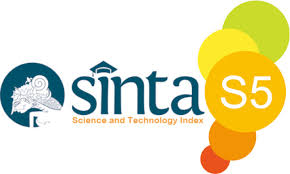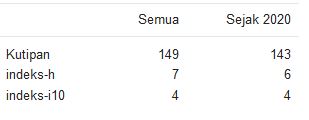Effectiveness of Respiratory Muscle Training Interventions in Patients with Spinal Cord Injury; A Literature Review
DOI:
https://doi.org/10.46749/nhbrpm78Keywords:
Respiratory Function Disorder, Spinal Cord Injury, Respiratory Muscle Training or exercise, Pulmonary FunctionAbstract
Spinal Cord Injury (SCI) level tinggi dapat menyebabkan gangguan pada pernapasan yang dapat mengancam nyawa pasien. One of the interventions that can be given to individuals with SCI in reducing complications of respiratory problems is Respiratory Muscle Training (RMT). Respiratory Muscle Training (RMT) is a technique that aims to improve the function of the respiratory muscles through specific exercises. This study determined the effectiveness of respiratory muscle training in spinal cord injury patients with respiratory problems. This literature review used several databases such as Google Scholar, Pubmed, Ebsco, Sciencedirect, CINAHL, and SAGE with inclusion criteria Articles published less than five years (2018-2022), English, Full text, Systematic review/meta-analysis/RCT. The results indicate that this RMT intervention's effectiveness on respiratory muscles and lung function depends on the characteristics of SCI patients. There were six articles used for the review of this paper. The results show that this respiratory muscle training intervention's effectiveness impacts respiratory muscles and lung function depending on the characteristics of the spinal cord injury patient himself. Furthermore, the results suggest that this RMT intervention's efficacy on respiratory muscle and lung function depends on the features of the SCI patient
References
Alizadeh, A., Dyck, S. M., & Karimi-Abdolrezaee, S. (2019). Traumatic spinal cord injury: An overview of pathophysiology, models and acute injury mechanisms. Frontiers in Neurology, 10(March), 1–25. https://doi.org/10.3389/fneur.2019.00282
Eckert, M. J., & Martin, M. J. (2017). Trauma: Spinal Cord Injury. Surgical Clinics of North America, 97(5), 1031–1045. https://doi.org/10.1016/j.suc.2017.06.008
El-Kader, S. M. A. (2018). Impact of respiratory muscle training on blood gases and pulmonary function among patients with cervical spinal cord injury. Electronic Journal of General Medicine, 15(3). https://doi.org/10.29333/ejgm/85190
Gee, C. M., Williams, A. M., Sheel, A. W., Eves, N. D., & West, C. R. (2019). Respiratory muscle training in athletes with cervical spinal cord injury affects cardiopulmonary function and exercise capacity. Journal of Physiology, 597(14), 3673–3685. https://doi.org/10.1113/JP277943
Legg Ditterline, B. E., Aslan, S. C., Randall, D. C., Harkema, S. J., Castillo, C., & Ovechkin, A. V. (2018). Effects of Respiratory Training on Heart Rate Variability and Baroreflex Sensitivity in Individuals With Chronic Spinal Cord Injury. Archives of Physical Medicine and Rehabilitation, 99(3), 423–432. https://doi.org/10.1016/j.apmr.2017.06.033
Nygren-Bonnier, M., Werner, J., Biguet, G., & Johansson, S. (2018). ‘Instead of popping pills, perhaps you should add frog breathing’: experiences of glossopharyngeal insufflation/breathing for people with cervical spinal cord injury. Disability and Rehabilitation, 40(14), 1639–1645. https://doi.org/10.1080/09638288.2017.1304583
Raab, A. M., Krebs, J., Pfister, M., Perret, C., Hopman, M., & Mueller, G. (2019). Respiratory muscle training in individuals with spinal cord injury: effect of training intensity and -volume on improvements in respiratory muscle strength. Spinal Cord, 57(6), 482–489. https://doi.org/10.1038/s41393-019-0249-5
Sapienza, C., Troche, M., Pitts, T., & Davenport, P. (2011). Respiratory strength training: Concept and intervention outcomes. Seminars in Speech and Language, 32(1), 21–30. https://doi.org/10.1055/s-0031-1271972
Shin, J.C., Han, E. Y., Cho, K. H., & I, S. H. (2019). Improvement in Pulmonary Function with Short-term Rehabilitation Treatment in Spinal Cord Injury Patients. Scientific Reports, 17091 (9), 1-8. https://doi.org/10.1038/s41598-019-52526-6
Sonali Soumyashree & Jaskirat Kaur (2018): Effect of inspiratory muscle training (IMT) on aerobic capacity, respiratory muscle strength and rate of perceived exertion in people with paraplegia, The Journal of Spinal Cord Medicine, DOI: 10.1080/10790268.2018.1462618
Tamplin, J., & Berlowitz, D. J. (2018). A systematic review and meta-analysis of the effects of respiratory muscle training on pulmonary function in tetraplegia. Spinal Cord, 52(3), 175–180. https://doi.org/10.1038/sc.2013.162
Downloads
Published
Issue
Section
License
Copyright (c) 2023 Unit Penelitian dan Pengabdian Masyarakat STIKES Fatmawati

This work is licensed under a Creative Commons Attribution-NonCommercial-ShareAlike 4.0 International License.





